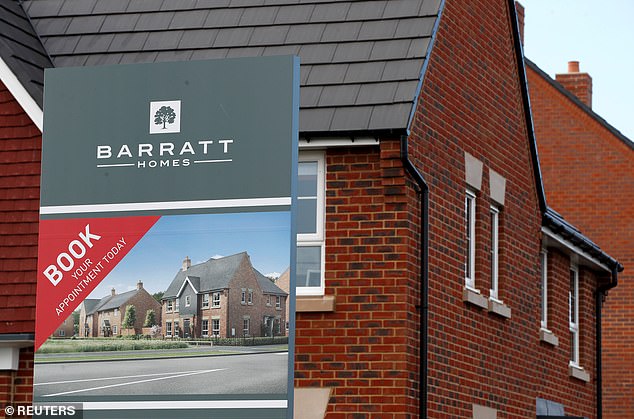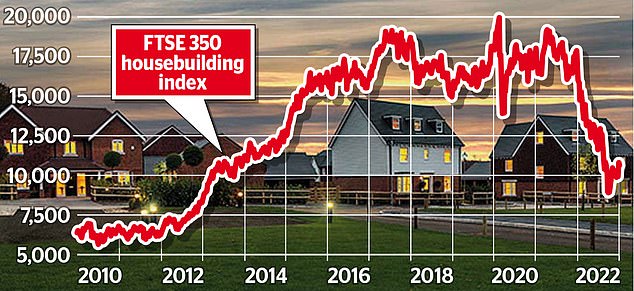Barratt Developments warns of housing market slowdown in UK
>
Barratt warns of a ‘marked slowdown’ in the housing market as the outlook for the sector deteriorates
<!–
<!–
<!–<!–
<!–
<!–
<!–
Barratt Developments has warned of a ‘marked slowdown’ in the housing market as the outlook for the sector deteriorates.
As a further sign that the pandemic boom in real estate has come to a chilling end, the FTSE 100 company reported a slump in sales amid rising mortgage costs and the threat of a price drop.
The gloomy update came as analysts predicted earnings for the big housing groups would drop sharply in 2023, after two years of cashing in on red-hot demand.

Slowdown: As a further sign that the pandemic real estate boom has come to a chilling end, Barratt Developments reported a slump in sales amid rising mortgage costs
In an update for the six months to the end of December, Barratt said average weekly sales were 44 per cent lower than a year earlier, while order value fell from £3.8bn to £2.5bn at the end of last year.
It blamed “political and economic uncertainty” and “rapid and significant” changes in mortgage rates that reduced affordability and eroded buyer confidence.
The outlook for the next six months was “uncertain” with mortgage prices and buyer optimism “critical,” it said.
It has stopped hiring staff and scrapped new estate inspections to save money. The shares fell 0.2 percent, or 0.7p, to 422.9p.
“After enjoying an all-time low for more than a decade [interest] rates, buyers are retreating from making long-term financial commitments to mortgages as the cost of living crisis hits.
Barratt clearly recognizes this,” says Julie Palmer of insolvency specialist Begbies Traynor. She added that a “prolonged delay” could affect the £200m share buyback announced in September.
Interactive Investor’s head of investment, Victoria Scholar, noted that a “chronic shortage of supply” prevented a “more aggressive fall in prices.”
Others were more cheerful. Hargreaves Lansdown’s Aarin Chiekrie said he was ‘cautiously optimistic’ about Barratt’s long-term prospects.
“Barratt’s substantial net cash position of £965 million gives it plenty of room to maneuver compared to competitors, even if the market continues to deteriorate,” added Chiekrie.


But Barratt’s warning is likely to upset shareholders of rival Taylor Wimpey, who will give his trading update tomorrow.
The signs of a slowing market seemed to herald a broader downturn in homebuilder profits, which boomed during the pandemic amid demand for spacious housing and a stamp duty holiday.
According to estimates from data company Refinitiv, the four largest builders of the FTSE 100, Persimmon, Berkeley, Barratt and Taylor Wimpey, are expected to make nearly £3.2 billion in profits by 2022.
But this is expected to fall to £2.5bn this year. Persimmon is estimated to drop from £963m to £645m, while Taylor Wimpey was predicted to drop from £850m to £551m.
Several construction workers have sounded the alarm. Berkeley warned last month that a cooling UK market and a “toxic” mix of challenges would slow developments.
It discussed issues such as a complex and slow planning system, higher costs, more regulation and the planned increase in corporate income tax by 6 percent.
Taylor Wimpey has downgraded his housing outlook due to weaker sales and rising cancellations, while Persimmon warned that rising interest rates and economic uncertainty were “clearly” impacting customer behavior and demand.
Growing fears of a slowdown have hit hard. Persimmon shares lost 57 percent of their value last year, while Barratt lost 47 percent, Taylor Wimpey 42 percent and Berkeley 21 percent.
The pain will continue. Halifax reported that the price of the average UK home fell by 1.5 percent in December and predicted that prices would fall by around 8 percent this year.
